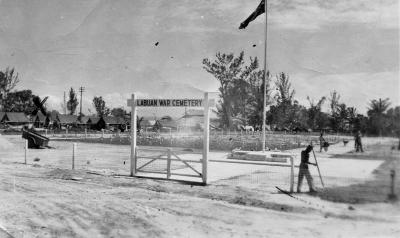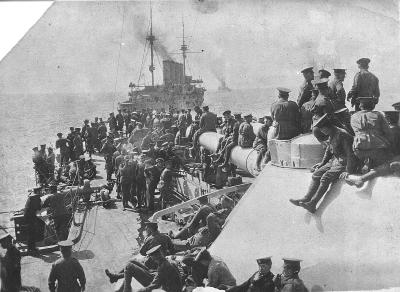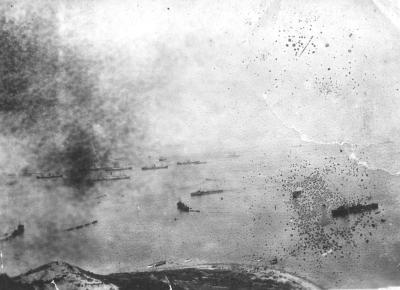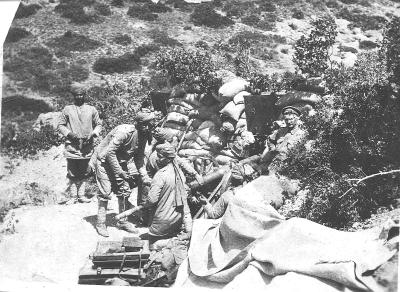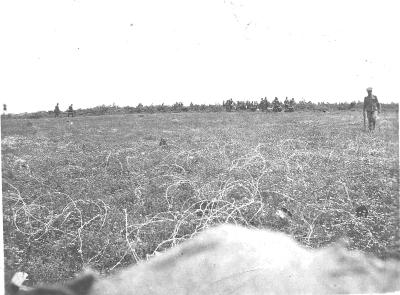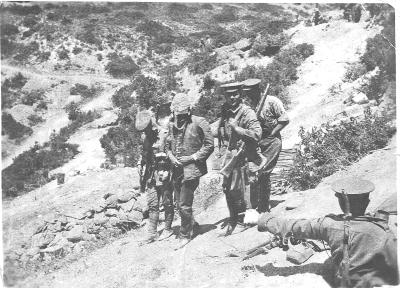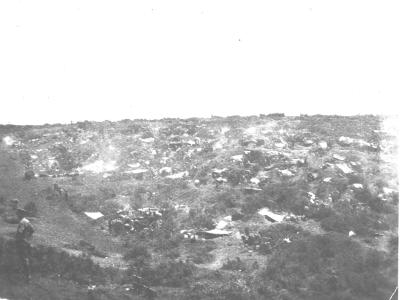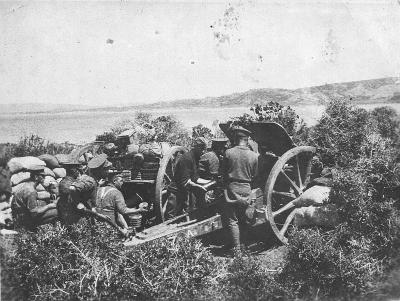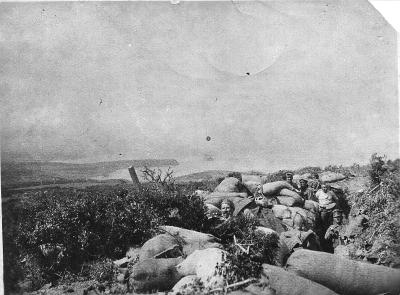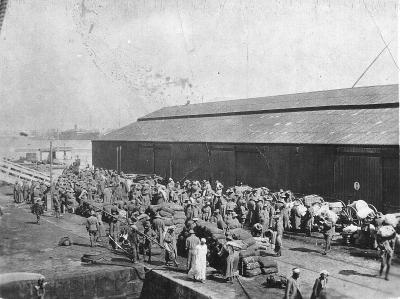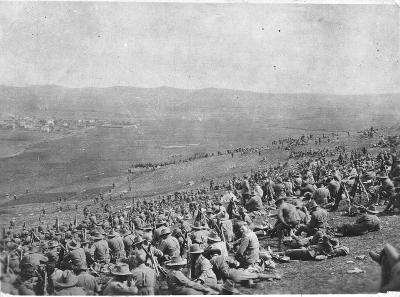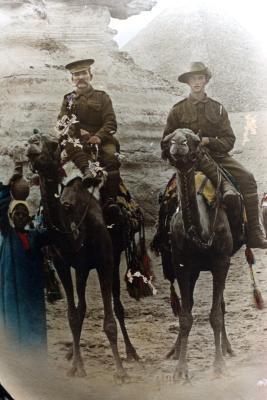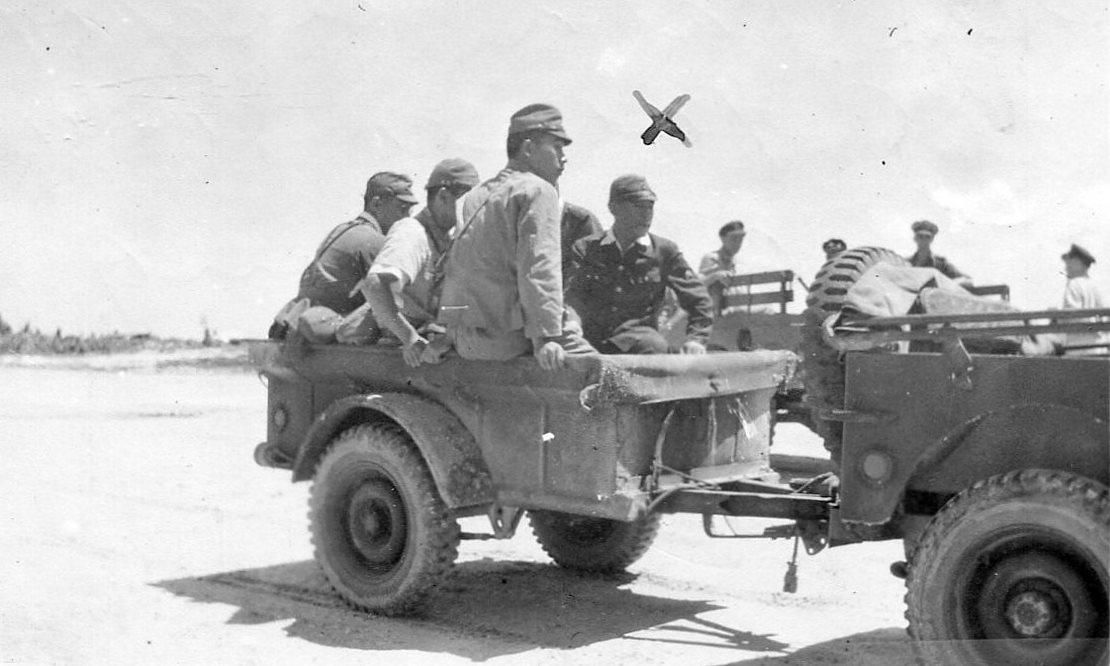World War 2, South West Pacific, Borneo, BABA, 1945
1945View of Japanese officers sitting in trailer, includes General Baba, later hung for war crimes
The Borneo campaign of 1945 was the last major Allied campaign in the South West Pacific Area during World War II to liberate Japanese-held British Borneo and Dutch Borneo. Designated collectively as Operation Oboe, a series of amphibious assaults between 1 May and 21 July were conducted by the Australian I Corps, under Lieutenant-General Leslie Morshead, against Imperial Japanese forces who had been occupying the island since late 1941 – early 1942. The Australian ground forces were supported by US and other Allied air and naval forces, with the US providing the bulk of the shipping and logistic support. Landings were undertaken at four locations: Tarakan; Labuan; North Borneo and Balikpapan. Guerilla operations were also carried out by Dayak tribesmen and small numbers of Allied personnel in the interior of the island. While major combat operations were concluded by mid-July, mopping-up operations continued throughout Borneo until the end of the war in August. Initially intended to secure vital airfields and port facilities to support future operations, preparatory bombardment resulted in heavy damage to the island's infrastructure, including its oil production facilities. As a result, the strategic benefits the Allies gained from the campaign were negligible.
Details
Details
Masao Baba (7 January 1892 – 7 August 1947) was a general in the Imperial Japanese Army, commanding the Japanese ground forces of the Borneo Campaign of 1945. Japanese forces surrendered on 9 September, with General Baba formally turning over his sword to Major General George Wootten of the Australian 9th Division at Labuan on 10 September. Baba was officially discharged from the Imperial Japanese Army in April 1946.[3]
Baba was arrested in January 1947 on suspicion of involvement in war crimes and brought to Rabaul for trial. Baba was charged with command responsibility for the Sandakan Death Marches, during which over 2,200 Australian prisoners of war perished. Evidence was presented at the trial that Baba was aware of the weakened condition of the prisoners, yet gave direct orders for the second march. The trial began on 28 May 1947 and was concluded eight days later on 5 June 1947 with a death sentence. Baba was executed by hanging on 7 August 1947.
Open in Google Maps
Nearest geotagged records:
Australian Army Museum of Western Australia
Australian Army Museum of Western Australia
Other items from Australian Army Museum of Western Australia
- World War 2, South West Pacific, Borneo, Labuan, 1945
- World War 1, Europe, Türkiye, Gallipoli, Anzac Cove, 11 Battalion AIF, 1915
- World War 1, Europe Türkiye Gallipoli, 1915
- World War 1, Europe Türkiye, Gallipoli, 1915
- World War 1, Europe Turkiye, Anzac Cove, Gallipoli, Armistice,1915
- World War 1 , Europe Türkiye Gallipoli, Anzac Cove, 1915
- World War 1, Europe, Türkiye, Gallipoli, Anzac Cove, 1915
- World War 1, Europe, Türkiye, Gallipoli, 1915
- World War 1, Europe Türkiye, Gallipoli, Anzac Cove, 11 Battalion, 1915
- World War 1, Middle East Egypt Alexandria, 11 Battalion, 1915
- World War 1, Europe Greece Lemnos, 3 Brigade, 1915
- World War 1 , Middle East Egypt Giza, THORPE, 1915
